Elizabeth Heritage speaks with Alan Dingley about his role as Te Awhi Rito New Zealand Reading Ambassador.
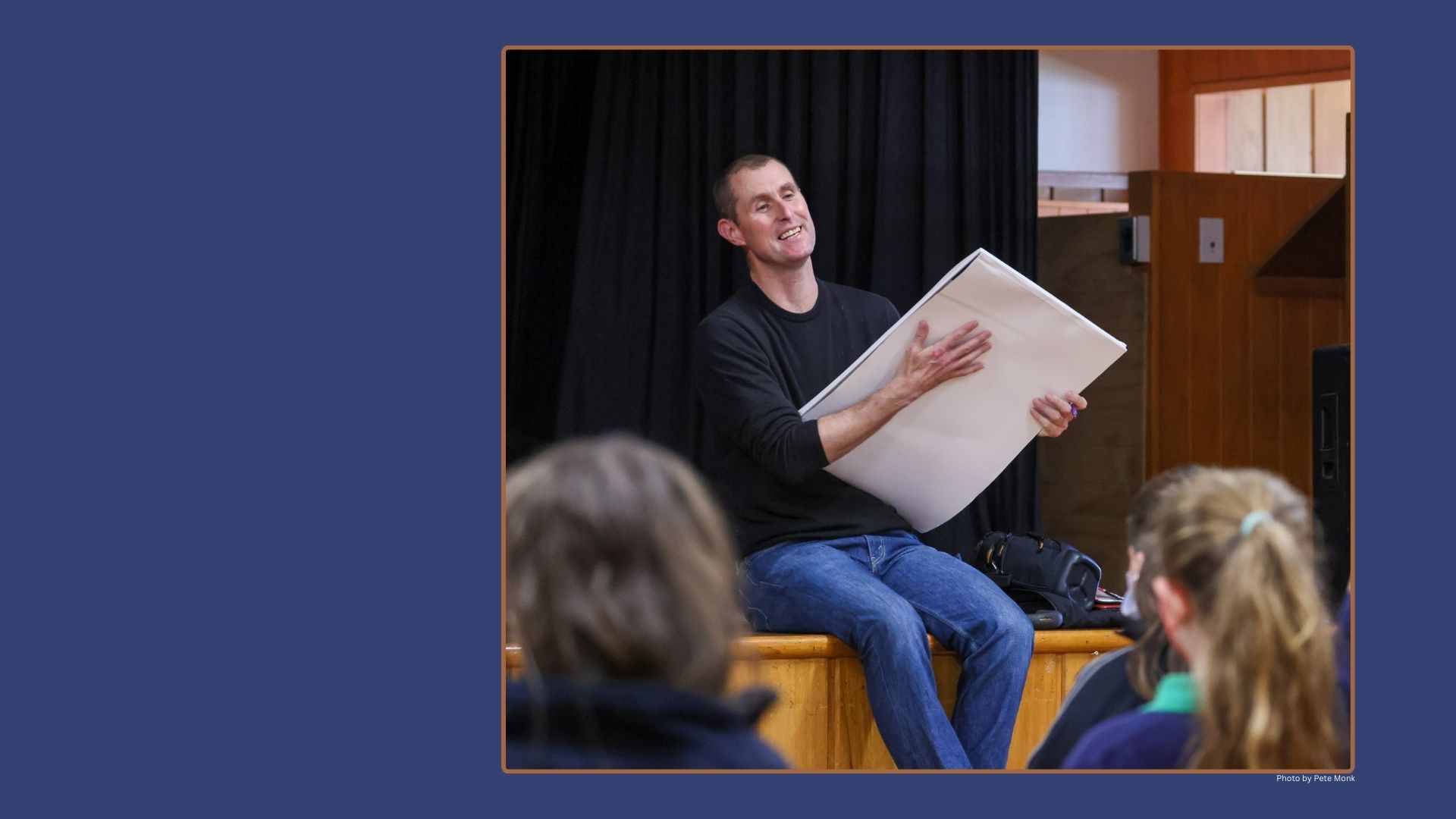
When I first meet Alan Dingley, he apologises for the wodge of tissue shoved up his nose. He’d just come from playing basketball with one of his mentees and there had been a slight ball-in-face accident. I offer to reschedule but he waves this off. ‘Let’s talk!’
We start with some whakawhanaungatanga. Alan is Pākeha and tangata Tiriti, as am I. Family legend has it that ‘Dingley’ comes from Dingle Dell in the East Riding of Yorkshire. On his mother’s side, Alan’s ancestor John Knapton Mawson immigrated to Aotearoa on the SS Northumberland in 1879. Alan himself was born in Ōtautahi Christchurch, before his family moved to Hawkes Bay when he was five. He now lives in Te Papaioea Palmerston North.
Alan remembers a teacher describing him in one of his early school reports as a labrador: heaps of energy and a pleasure to have in class, but lacking focus. Alan acknowledges he has always had neurodivergent tendencies and often refers to his ‘labrador brain’ with ‘way too many tabs open’.
Love of books has been a theme throughout Alan’s life. ‘My grandfather was my reading role model. We would go for summer holidays to his place at Woodend Beach outside Christchurch. Pop had all those Readers Digest condensed books, and we would sit on the porch reading. He didn’t have any books for kids, or any NZ books. Instead I read a lot of Wilbur Smith and learned about apartheid.’
By his own telling Alan was a bit of an outsider as a child. ‘I wasn’t great at making friends—I was more of a tagalong guy. I felt like I couldn’t invite people over because my mum had been sick for a long time.’ Alan’s mother Betty died when he was fifteen, and ‘my family dynamic fell apart. That’s why I like Roald Dahl so much, because he gets that sometimes adults aren’t who we think they are, and things aren’t good at home.’
After school Alan enrolled in Teachers College but failed to graduate as he was struggling to focus. Instead, he got a job as a special needs teacher aide at Monrad Intermediate in Highbury, where he worked hard to find ‘that one thing that would help me connect with the kids.’ When the school librarian retired in 1998 he offered to take over, and he’s been working as a school librarian ever since. ‘I turned the library into the hub of the school by asking the kids what they wanted to see on the shelves and then trying to provide that.’
Lacking formal qualifications, Alan has suffered a lot from imposter syndrome. ‘I was really worried I’d be found out, but I never was, so I just keep vibing.’ Later he had another crack at Teachers College, but by then his wife Kirsty was sick and he had to go back to work. When Kirsty died in 2017 one of Alan’s friends pointed out that he now had a chance to take his own advice and seek healing through literature. He recommends The Fix-It Man by Dimity Powell, a picture book about the lives of a young child and her father after the death of her mother. ‘On my journey I’ve had crappy things happen, but I’m lucky to have so many wonderful books.’ Alan now parents his and Kirsty’s two children, Sam and Trevor. (Trevor has three pet rats; a hobby widely agreed by me to be a sign of excellent taste and judgement.)
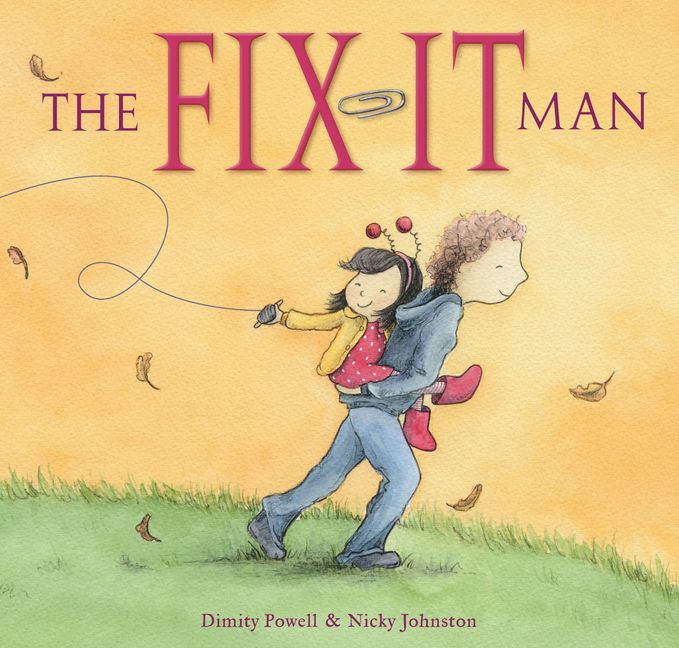
It’s easy to see why Alan was selected for the role of Te Awhi Rito, or Reading Ambassador. The LinkedIn-ification of language has largely devalued the term ‘passionate about their work’, but in this case it’s absolutely accurate. Alan’s wholehearted commitment to helping kids ‘find their reading joy’ comes across loud and clear.
The name refers to the harakeke plant, where rito are the young shoots and awhi rito are the strong leaves protecting them. The idea is that this person should champion reading among young people.
Elizabeth Jones, Chair of the Te Awhi Rito Partners says, ‘There had long been a desire for a national reading ambassador for children and young people in New Zealand similar to those in many other countries, recognising the importance of positive reading role models and champions for reading and literature for children and young people.
After years of discussion across several organisations, we were finally able to establish it [in 2020] at the National Library as Te Awhi Rito Reading Ambassador with the initial financial support of Te Puna Foundation. From the outset, we recognised the Te Awhi Rito role needed to be a national champion and advocate for the life-changing power and benefits of reading and be able to connect, inspire and engage others across Aotearoa in this endeavour. It was important too that this initiative was strengthened through partnership and the Te Awhi Rito partners Group was established to support our shared mission to grow a nation of readers’.
Alan is only the second ever Te Awhi Rito, after poet Ben Brown (Ngāti Mahuta, Ngāti Koroki, Ngāti Paoa). Ben says that ‘As Te Awhi Rito, my job and our mission was and is to inspire a love of reading in our tamariki and rangatahi. Reading unlocks our human superpowers, as we come to know the experiences of others. We grow better, faster, happier brains simply by picking up a book and reading it. Telling stories is how we build humans. Alan Dingley is an improv storyteller who brings an infectious passionate energy to the advocacy of reading.’
We grow better, faster, happier brains simply by picking up a book and reading it.
Alan says that ‘Ben’s kaupapa was all about the power of words and encouraging kids to express themselves. My strength is connection.’ Alan has been a theatre sports enthusiast for years and, as a high-energy person, is obviously great in a room. His approach to the role of Te Awhi Rito is to visit as many schools and talk to as many kids as possible. ‘I love what I’m doing—it’s so cool. Every presentation is different.’
Alan’s tenure as Te Awhi Rito runs from May 2023 to May 2025. So far he has spoken to over twelve thousand children, and he aims to get that up to a round fifteen. ‘During my tour of Northland I went to Whangaparāoa College. There were supposed to be 200 kids attending but when I walked into the auditorium there were closer to 700. It ended up like a game show with me bounding up and down the aisles with a microphone.’
Sara Neville from National Library Services to Schools accompanied Alan on some of his school visits in Hawkes Bay. She says that ‘listening to Alan speak with such passion and enthusiasm for reading is contagious. His ability to connect with the wide range of books and authors mentioned by ākonga is inspiring’.
Schools report that kids are engrossed. One teacher noted that ‘it is so significant for our boys to see an enthusiastic, passionate, and successful male reading model’. Another reported that their ākonga ‘have taken on board some of his ideas, such as reading aloud to others—one has decided to start reading aloud to anyone who wants to listen during lunchtime in the library’.
Listening to Alan speak with such passion and enthusiasm for reading is contagious.
Alan always asks the kids to name famous New Zealanders. They mostly come up with sportspeople and pop stars. ‘I’ve only heard six authors and illustrators named—two Margaret Mahy’s, Murray Ball, Joy Cowley, David Hill, and Fleur Beale.’ I mention that I’m acquainted with Fleur and the conversation derails into us both talking excitedly about how cool she is. ‘Fleur is a taonga! I am Esther is my go-to recommendation for young women and it’s always a hit.’ By the time we’ve fully explored this topic our time is up and I have to schedule another kōrero for the following day.
Like Alan, I lived in a cancer household as a teen, although in our case thankfully my brother survived. Also like Alan, I didn’t have much to read back then that helped me process my fear and helplessness. But times have changed. Even just taking the last two books I’ve reviewed for The Sapling, for example—Mandy Hager’s Gracehopper and Mary-anne Scott’s The Mess of our Lives—both are YA novels about teens reacting to the unjust and painful circumstances of their lives with grief and rage.
Alan says that ‘a lot of kids are angry and don’t know why. We’re not letting them express it. But we all deal with anger on a daily basis and expressing it can be a magical thing to do.’ In Roald Dahl’s Matilda, for example, her anger turns into a superpower that saves her. ‘We have to trust that kids want and need to have these conversations.’ During his events Alan always asks the kids what books they think should be in their library. ‘If a kid recommends a book that I know has some heavy stuff in it, I’ll say that I love that book because of the hard themes. It’s important not just for that child, but for the others listening who can see us connecting. I’ll listen to every kid and take every book suggestion.’
Alan is fond of saying that a good book can be a mirror or a doorway. ‘My mirror book is A Monster Calls by Patrick Ness [a YA novel about a boy whose mother is dying of cancer]. When I read it in my early thirties, it broke me. I remembered all the anger from my teen years. I can only re-read it once in a wee while because it’s so incredibly visceral. One of my favourite moments as Te Awhi Rito was at Kaikōura primary school when a child recommended A Monster Calls to me. He knew how important it was. It was a moment of real connection.’
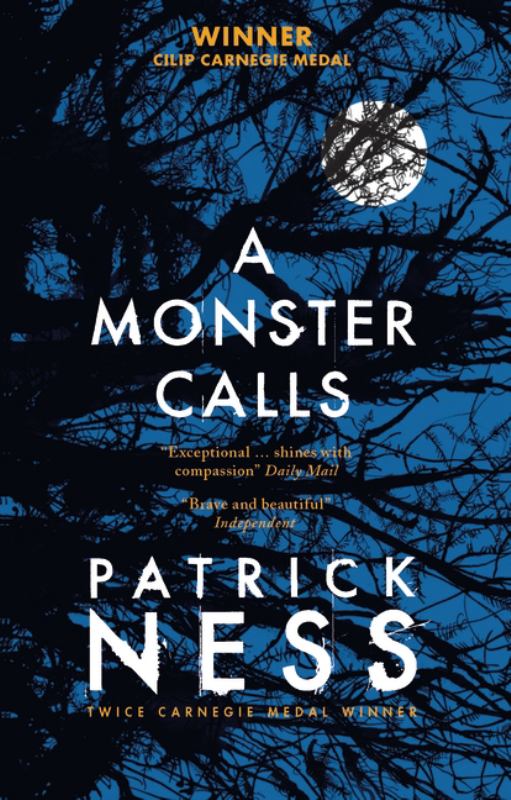
Anger can come not just from one’s personal circumstances but from wider issues. Our kōrero turns to November’s hīkoi, fuelled in part by justifiable anger. ‘I hope the ripples of the hīkoi keep up the momentum. Some authors have that anger in their books in a beautiful way.’ Alan also believes in the power of literary representation. ‘You can’t make sense of a world that’s not shown to you. How can you value your place if it is not reflected truthfully?’
When it comes to his role as Library Manager at Freyberg High School in Palmerston North, Alan’s collection policy is very much student-led. ‘It shouldn’t be a case of, you should love this because you’re a teenager. We need to know the quality that’s out there, especially of local literature, instead of the same old trite “read the classics” approach. Imagine a class of Pākehā kids all reading Shilo Kino’s The Pōrangi Boy, for example.’
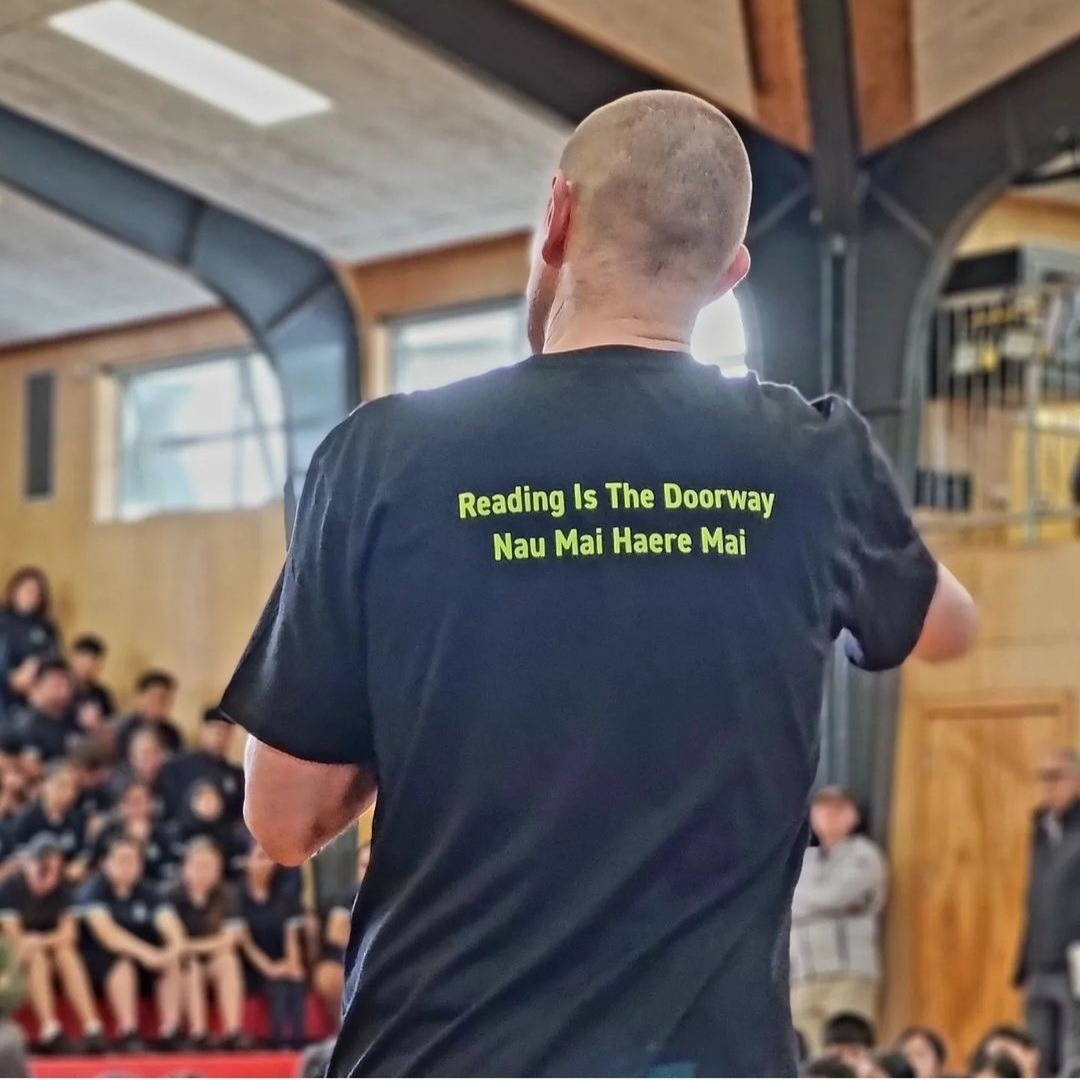
At the recent school librarians’ conference, Alan gave a keynote presentation called ‘Doors Wide Open’. ‘I want every child to feel that a library is their space, but it can be difficult for kids to feel at home here if they don’t have the power of literacy ingrained. That’s why I talk to families about the value of reading aloud, and I always read aloud during my events as Te Awhi Rito.’
Nominations have just closed for the third Awhi Rito. Alan is proof that kaupapa is more important than formal qualifications. ‘I joke that I’m the most unqualified qualified librarian in the country! I am currently studying with Open Polytechnic to get my first diploma, but really I’ve got to where I am on the back of experience and passion.’ Alan’s role officially ends in May 2025 but he will keep championing reading for kids. ‘Once Te Awhi Rito, always Te Awhi Rito.’
The new Te Awhi Rito will be announced in May.
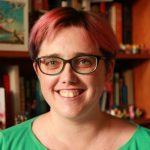
Elizabeth Heritage
Elizabeth Heritage is a Pākehā arts journalist and freelance publishing professional, and does comms for the Human Rights Measurement Initiative. She is based online at www.elizabethheritage.co.nz and IRL in Wellington.



